By Charlene Muhammad CHARLENEM
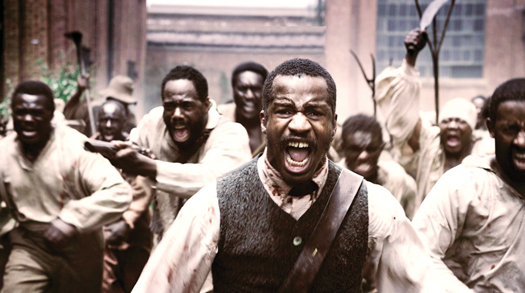
LOS ANGELES–America’s contradictions and struggles with the old, ugly, and deadly problems of racism and White supremacy were already on full display with the release of “The Birth of a Nation” movie.
Not the racist film by D.W. Griffith that depicted Blacks as beasts and monsters who lusted after White women, but producer, director and lead actor Nate Parker’s film on the 1831 slave revolt held by Black hero Nat Turner.
The highly anticipated film on the life of the Black preacher, who liberated his people if just for a moment, took in $7.1 million during its opening weekend.
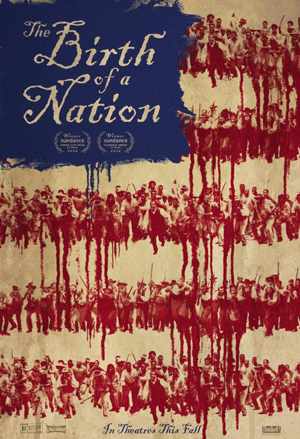
Mr. Parker’s film drew discussions about connections between today’s uprisings and 19th century oppression. It empowered and emboldened some and upset others.
“It feels like a breath of liberating air in the sense that now that the film exists, no one can take it away. It took me eight years to carry this film, and I was told by so many not to make it for various reasons. People who looked like me, people who didn’t look like me, there was so much fear that was constantly being hurled at me during the process of making this film,” Mr. Parker told The Final Call in an exclusive telephone interview. (See page 34 for edited transcript of the full interview.)
“But I truthfully, you know, just connected to my faith and I said in the same way that Nat Turner said if God is real, then what’s happening to oppressed people of God is wrong, and if I have a responsibility to lead people, I have to do something,” he continued.
“Nina Simone said the artist’s job is to reflect the times, so, my job is to reflect the times, not to acquiesce to the fear-baiting of people who don’t feel comfortable stepping out of the comfortable or the safe place of assimilative culture. I am completely open to anything and everything that comes toward me, if it means the result of my actions will bring us closer to being liberated as the oppressed people in this country.
“So, I don’t look at it as a director. I don’t look at it as an actor. I look at it as someone who created something that hopefully progresses the narrative and breaks the cycle of bondage and oppression that is so clearly devastating our communities on both sides of the color line,” he said.
“You know what I learned about myself is that I’m behind the eight ball as a 36-year-old man. I got the opportunity to meet with Harry Belafonte, and he said, ‘When I was 26, I joined the movement and I was an elder.’ He said Fred Hampton was 19. Stokely Carmichael was 19. Dr. King was 24. He said he was an elder at 26, so when I decided to make this film and I stepped away from acting for two years, I said, you know, I’m late. You know what I mean? We get caught up in this misguided idea of success and money and assimilation and we forget that there’s no amount of symbolic leadership or symbolic success that can speak for the millions who are subjugated every single day,” said Mr. Parker.
“A big part of this whole process was about saying Paul Robeson did what he did and lived the way he did for me. Sojourner Truth lived the way she lived for me. Harriet Tubman lived the way she lived for me. Denmark Vesey did what he did for me. At some point, I have to cash in on that sacrifice. I have to take the torch through whatever storm and make sure the word and message gets to those who need it most.
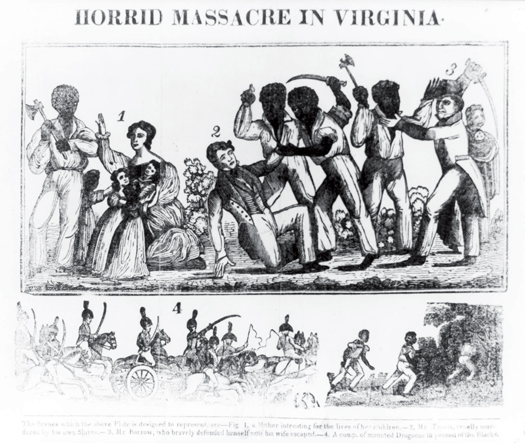
“And if that means making a film about Nat Turner, then here we are.”
Resurrecting Nat Turner
Long time reparations activist Dr. Conrad Worrill feels Nate Parker has freed Nat Turner from the clutches of history.
The producer placed the enslaved preacher in a historical context as a hero, Dr. Worrill told The Final Call.
He hopes the movie inspires youth to study the early 19th century when there were hundreds of slave rebellions, many were not even recorded.
Not just youth, but adults, such as a near 60-year-old movie-goer who said she never heard of Nat Turner, need to study the history of Black freedom fighters, said analysts.
Hundreds of slave insurrections were inspired by the 1804 Haitian Revolution as word spread that enslaved Africans had overthrown the system of oppression and defeated the top three military powers in the world at the time–the British, the French and the Spanish, Dr. Worrill said.
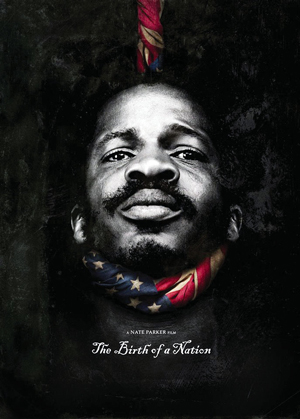
“The fact that Nat Turner played a key role in a failed rebellion is something for us to study, because he was almost successful. And some of the reasons that we’re not successful today is because we have people on the inside of our community who collaborate with the oppressor to disrupt our forward motion,” Dr. Worrill told The Final Call.
The oppressor still uses that formula today, said the former college professor and Black nationalist leader.
Nat Turner’s forces were able to kill some White people, but were defeated and Whites relegated him to leader of a failed insurrection, a madman obsessed with White women, and someone who was not a hero. But he was a deeply religious man and had apocalyptic visions of clashes and signs that “I should arise and prepare myself and slay my enemies with their own weapons.”
In August 1831, the freedom fighter and his closest comrades started the Southampton, Va., insurrection and his forces quickly grew to 40 slaves.
The rebels moved toward the town of Jerusalem by Aug. 22 but were met by Whites, who scattered Turner’s forces. State and federal troops entered the fray and Turner was able to hide until captured Oct. 30. The lives of 55 Whites were taken during the rebellion.
The freedom fighter was tried in Southampton County Court and hanged in November 1831. After his hanging, his body skinned. An additional 55 people were killed, more were banished from the state of Virginia and a few accused slaves were acquitted.
“But in the hysterical climate that followed the rebellion, close to 200 Black people, many of whom had nothing to do with the rebellion, were murdered by White mobs. In addition, slaves as far away as North Carolina were accused of having a connection with the insurrection, and were subsequently tried and executed. The state legislature of Virginia considered abolishing slavery, but in a close vote decided to retain slavery and to support a repressive policy against Black people, slave and free,” according to the PBS series “Africans in America.”
Humanizing Nat Turner
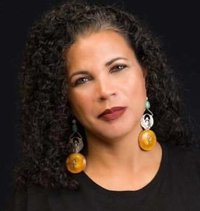
Dr. Melina Abdullah, a Black Lives Matter Los Angeles organizer and chair of Pan-African Studies at California State University–Los Angeles, had hoped the film would do Nat Turner justice–and not present a watered-down version of his uprising. She spoke to The Final Call following an Oct. 2 special screening of the film before its release Oct. 7.
“It was a very emotional movie, and I think I was still kind of in shock that they allowed the movie to come out,” she said. “I don’t think I was fully prepared for how much of the truth it told.”
Ms. Abdullah appreciated how Mr. Parker showcased Nat Turner’s humanity, because he wasn’t always the freedom fighter he ultimately became. He wasn’t always listening to the will of the creator and the will of the ancestors and heeding that, she said.
Nat Turner had an opportunity to be the good Negro, special, rewarded by his proclaimed master, but he decided all slaves needed to be free, Ms. Abdullah observed.
Dr. Abdullah was also struck by the intentional way Mr. Parker told the story that Blacks are African people who come from somewhere, and that their traditions and spiritual connections are rooted in who they are.
She thought his treatment of women in the film was very encouraging.
“It would be very easy to tell the story of Nat Turner without really giving space and respect to the role that Black women played in rebellions, and I think the role of his mother, his grandmother, his wife, it was really important for that to be,” she said.
She would like to have seen the women who were part of the historical rebellion depicted.
On an official trailer linking the movie to the Black Lives Matter protests in the streets, she remarked, “I think that’s the moment we’re in. … Are we going to say I’m going to sit back in whatever comfort I can win for myself and for my family, or, are we going to say none of us is free unless all of us are free and there are some things worth fighting for and perhaps even dying for?”
Jade Daniels felt the movie was a lot at once, emotionally draining and fulfilling. Nat Turner is one of her idols. She felt Nate Parker did an amazing job bringing his story to the big screen.
She acknowledged the “to see or not to see” the movie debate stemming from a 1999 rape case, in which the producer and a friend were charged with raping a young White woman in college. Mr. Parker, who was acquitted, has maintained his innocence, saying he was falsely accused.
“That was very problematic for me, because I actually had a lot of internal debate about it, and I just went,” she said. “I’m a feminist. I’m anti-rape. I do not support rapists. I do not support rape culture, so I’ve been having this internal dialogue, and something told me to go see the film,” said Ms. Daniels.
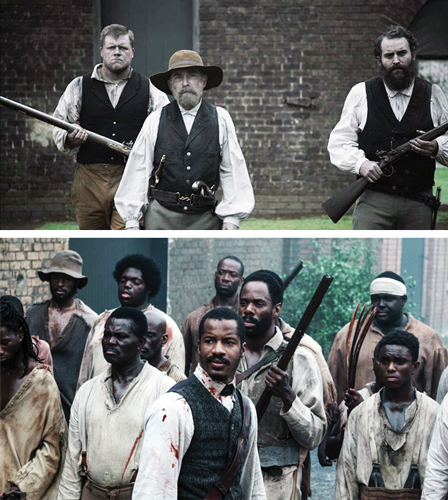
“I think it reminds us that we were not docile. We’re not docile people. We’re not subordinate. It’s a fight for freedom. … It’s real. It’s serious, and I think we should remember our ancestors and how they fought, and not the s–t that people feed us, not the White supremacists’ history of our fight for equality of our struggle, because that’s not what it was,” Ms. Daniels said.
“I’ve watched Woody Allen films. I’ve watched Roman Polansky films. The thing about White supremacy is it works in very intricate ways. It’s not just Klan members, things that’s easy for you to pick and choose. It works in ways that are very detrimental, and so that’s something I’m already seeing a divide on, if we should see this movie or not.”
“I think that the bottom line is he was cleared. It takes a lot for a Black man to be cleared of raping a White woman,” said Dr. Melina Abdullah.
She said critics were silent when Mr. Parker’s Red Tails (the story of the Tuskegee Airmen) came out or every other film he’s done.
“That’s my view of it, and I don’t want to minimize the seriousness of rape and sexual assault, but I also want to say that he was cleared, and I don’t think it’s coincidental that this is coming up now,” Dr. Abdullah said.
Some questioned whether the powers that be in Hollywood have a more nefarious aim in mind–like prompting youth and activists in the streets to wage a rebellion against heavily armed police forces, which have their origins in slave patrols.
Nation of Islam Student Minister Ishmael Muhammad, national assistant to the Honorable Minister Louis Farrakhan, noted that powerful members of the Jewish community set trends. He believes they are trying to set a trend with the new film.
A prominent Hollywood producer once told Minister Farrakhan about a group of men in Los Angeles and New York who use their talents to influence people through books, newspapers, plays and movies, Min. Ishmael Muhammad said.
“Hollywood is set up as part of the machine to brainwash people, for mind control. … It is not only for entertainment, but it’s shepherding or guiding or influencing behavior,” he said.
The passion of the American people is being turned against Islam and Blacks, Black youth in particular, because they have the spirit of Nat Turner, and other Black revolutionaries, such as Denmark Vesey, Gabriel Prosser, Toussaint L’Ouverture, Dutty Bookman, and Jean-Jacques Dessalines, he argued.
Why this movie at this time? he questioned. And, he continued, why did an official trailer connect protests in the streets with the movie? The enemy is now afraid his slaves are being awakened and unchained, said Ishmael Muhammad.
“The Hollywood that is controlled by Jews doesn’t put out a movie, especially if it’s about you without an aim and purpose. He’s setting a trend, and he’s directing or attempting to direct the passion that’s in the breasts of a people who are dissatisfied, angry, upset because of injustice and the failure of government and this system to give justice to us who have lost our sons to police,” Min. Muhammad said.
Watch and research history says scholar
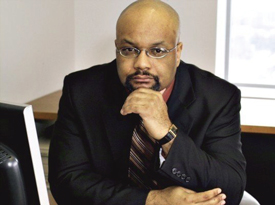
Dr. Boyce Watkins, author, economist and social commentator, encouraged people to see the film, and then do some research.
“Nat Turner was nobody’s slave in my opinion,” Dr. Watkins stated.
“This is not ‘The Butler’ or ‘The Help.’ This is a movie that is about a Black man who was a man, who did what all men should be doing, which is to say I would rather be dead than to have you treat me and my family this way,” he said.
He feels Nat Turner’s story should be celebrated. Find out who the females were that fought with him, urged Dr. Watkins. The result would be more stories by Blacks that are fair and that make sense, he predicted.
Like many, he feels The Birth of a Nation represents part of the Black awakening in America, where Blacks are starting to redefine their history and who they are.
“I think it’s beautiful. I’m very happy he made the movie, but you can’t make a movie like this and not expect to get a response and not expect your enemy to fight you back, because they’re human. They’re going to react when they sense that you’re taking away their power, and it’s only going to get worse,” Dr. Watkins said.
He feels the movie is bad timing for some, because they don’t want White people to get more riled up. But, he said, the timing’s perfect for others because it’s a reflection of how many are feeling.
“I think that we live under the impression sometimes that this is our Hollywood. This is not our Hollywood. It is their Hollywood, and that means that we’re playing by their rules, and their rules are based on their biases, which are clearly documented,” Dr. Watkins continued.












